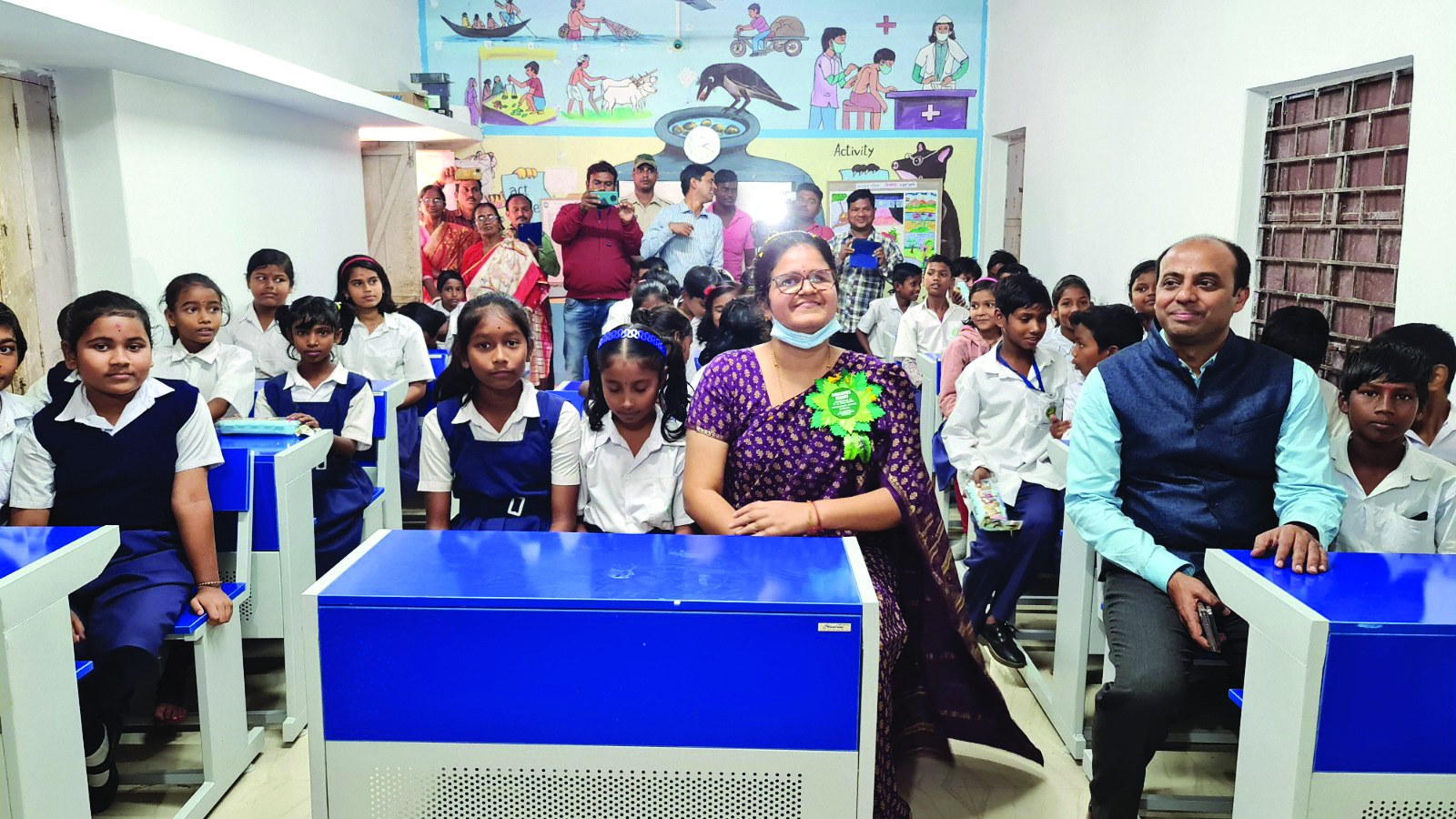Centre lauds Bankura for accessible education

Kolkata: Bankura has been lauded by the Centre for making education accessible to underprivileged students from remote tribal areas under Samagra Siksha Mission (SSM) programme.
A coffee table book released by Prime Minister Narendra Modi on the occasion of Civil Service Day mentions in detail how the district administration of Bankura has undertaken targeted initiatives to address the underperforming SSM indicators which contributed to bridging the education gap even during the Covid period.
“Bankura has been lauded by the centre for making education accessible to underprivileged students from remote tribal areas! With Hon'ble CM @MamataOfficial at the helm and support from schemes such as Sabooj Sathi & Kanyashree, GoWB was able to expand the services to 75 schools,” a tweet from the All India Trinamool Congress read.
The district administration led by DM K Radhiya Aiyar launched an initiative to monitor twelve major indicators of the SSM with the assistance of the District School Inspectors (SI) at the circle levels that includes access and retention, quality, Right To Education entitlements, gender and equity, inclusive education, digital initiatives, vocational education, innovativeness, sports and physical education, strengthening of Teacher Eligibility Test, pre-school education and community mobilisation.
The strategies have been outlined in detail that includes the launch of an educational YouTube channel, to upload videos and make available e-Learning content for upper primary to higher secondary students. All the e-Learning content lectured by school teachers was uploaded on this YouTube channel, and a separate playlist was created for Children with Special Needs (CWSN) for whom e-Learning content was prepared by the special educator.
Geospatial Information System (GIS) mapping survey was conducted across the district to identify educational thrust areas. Through this initiative, unserved and oversaturated areas were revealed and it helped in better planning to provide quality education. For the capacity building of school teachers, 85 per cent of secondary level and 75 per cent of primary level teachers were trained in the use of digital applications. Children's Film Festival was celebrated to motivate children by showing educational films, such as biographical films, sports, drama, science fiction, societal issues films, etc.
Cycles were distributed under the Sabooj Sathi project, while scholarships were also distributed through the Kanyashree project.
About 5,000 teachers have been trained and 10,000 students benefited through this programme. Digital content for students was created by the school teachers to encourage students. Even the remotest parts of the district remained connected through technology.
Initiatives like addressing malnourishment among the tribals also find a mention in the coffee table book.



